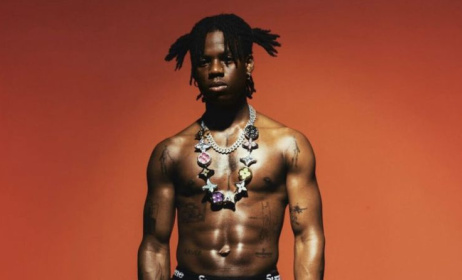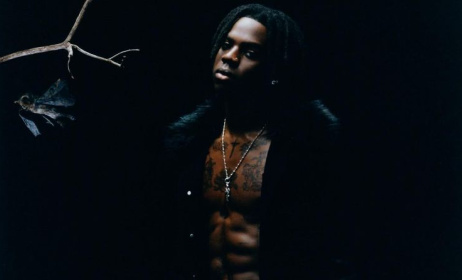Digital takes centre stage at Burkinabe music conference
The African music market is exploding as streaming services become more accessible to a growing audience of young people. However, there is an urgency to revise cultural policy across Africa to accommodate new technology in the urgency of copyright and royalty reform.
 REMA founder Alif Naaba.
REMA founder Alif Naaba. Selam TY performing at REMA 2020. Photos: Boub's Sidibé
Selam TY performing at REMA 2020. Photos: Boub's Sidibé Didier Awadi was one of the panellists.
Didier Awadi was one of the panellists.
This was discussed during the third edition of the African Music Meetings (REMA) conference from 22 to 25 October in Ouagadougou, Burkina Faso. REMA, of course, took place against the backdrop of the COVID-19 pandemic, which has halted much of the music industry on the continent. The event featured two panel discussions titled Music, Digital and Local Economies: How to Develop Suitable Tools and The Future of the Music Industry in the Digital Age. The speakers were industry experts and cultural practitioners from France as well as West and Central Africa, including hip hop galsen legend Didier Awadi (Senegal), Visa for Music founder Brahim El Mazned (Morocco), Burkina Faso Copyright Office director-general Walid Bara, Forum for Africa and the Diaspora in France director Alain Bidjeck, Amani Festival co-founder in the DRC and the initiator of the Forum of Peacebuilding Agencies in Mali, Vianney Bisimwa, and digital music strategist Michele Beltan (France), among others.
The speakers offered an assessment of the challenges concerning digital platforms for the cultural industry and emphasised the need for efficient policies based on the transnational dimension of the digital space. They also spoke about the importance of artists attaining entrepreneurial skills to navigate successful careers.
The West African Francophone region is experiencing an emergence of numerous startups, attesting to significant advances in digital. However, the region faces a number of challenges including underwhelming cellular network coverage, which is hindering subscription to digital service providers (DSPs). The panellists agreed that if coverage improved, market growth would be expedited, especially if this led to a decrease in data prices, a further barrier for DSPs.
The region is also experiencing high levels of piracy, an obvious threat to licensed services. Due to the high quality of pirated material, it is tough to convert consumers to paid subscription services, and while they provide consumers access to extensive music catalogues, they also inadvertently become targets of piracy. The panellists agreed that Africa lacks a concrete framework to combat this hinderance.
The panellists also highlighted the need for startups to partner with telecom operators to simplify payments for new subscribers. Telecom companies’ big presence, they said, had a significant bearing on upcoming DSPs’ potential to grow their user bases. This commercial dynamic had led to emerging streaming services prioritising favourable deals with telcos as a core part of their go-to-market strategy, in order to streamline distribution channels and payment methods.
However, telcos and digital content companies were now expanding their work beyond distribution and into talent management, award platforms, and audio and video production – activities that the panellists believe need to be regulated to empower local creatives.
The panellists were also unified in their assessment that the COVID-19 crisis had been a wake-up call for music professionals to realise the full potential of digital. They said the pandemic had forced musicians into content creation and entrepreneurship as an alternative source of income, which was a testament to an unwaveringly innovative industry. However, the uptake of digital had unearthed underlying challenges that were affecting areas such as copyright, piracy, privacy and royalty collection.
A two-day workshop titled Artists' Branding and How to Release Music Digitally was facilitated by Michele Beltan at Goethe-Institut Ouagadougou, while the music showcases took place in the evenings at Paongo arts centre with an all-star line-up from Burkina Faso, Togo, Cameroon, Ivory Coast and Mali.
The highlight performance was arguably by Burkinabe artist Fleur Ouedraogo. The singer conquered the hearts of the spectators and delivered a concert worthy of the best with sensual and melancholic compositions. Another noteworthy performance was by Ivorian Selam TY who impressed with his reggae sound and boundless energy. The stage, which he approached like a boxing ring, is truly his domain.
REMA is organised by Cour du Naaba, a cultural organisation founded by musician Alif Naaba. “The goal for REMA is to inspire a revolution that will indeed turn Burkina Faso into a regional hub for culture,” he said. “I am pleased and satisfied because we had the best audience and were very lucky to be able to hold this edition. REMA will continue to maintain its high artistic quality to remain an important cultural source for the entire region and a platform for international meetings that are useful for Burkina Faso professionals.”



































Comments
Log in or register to post comments